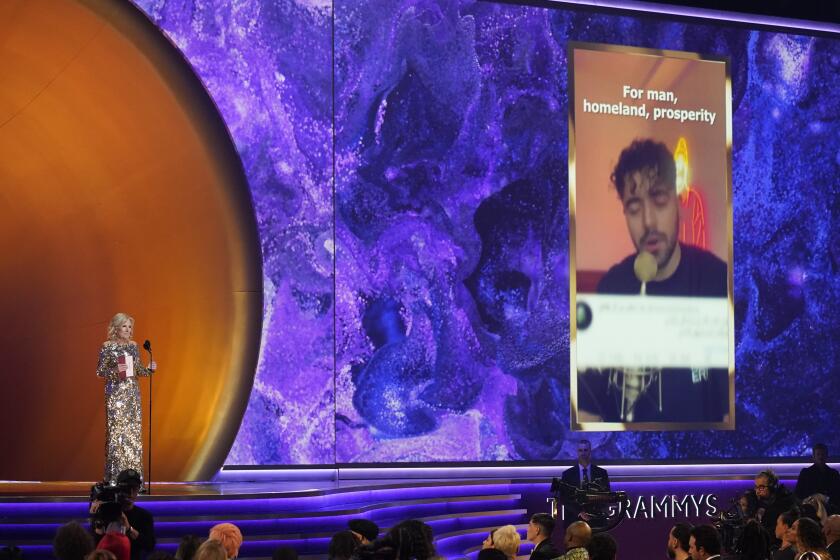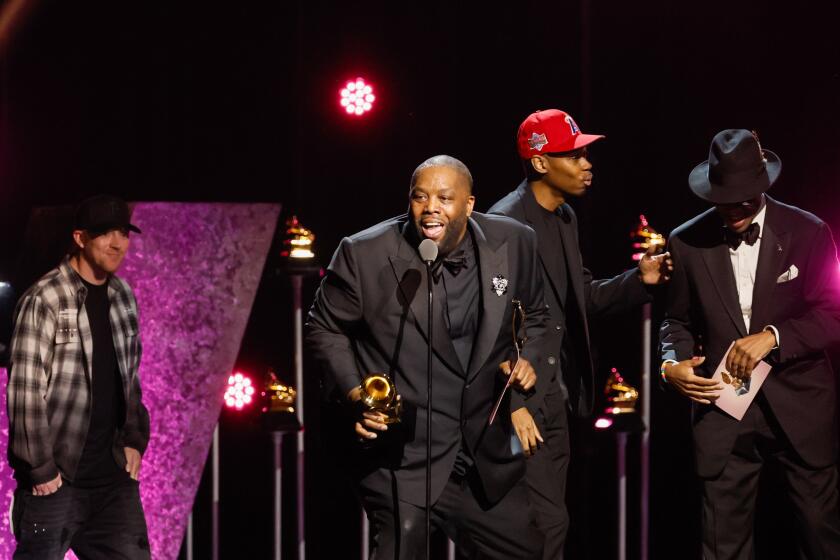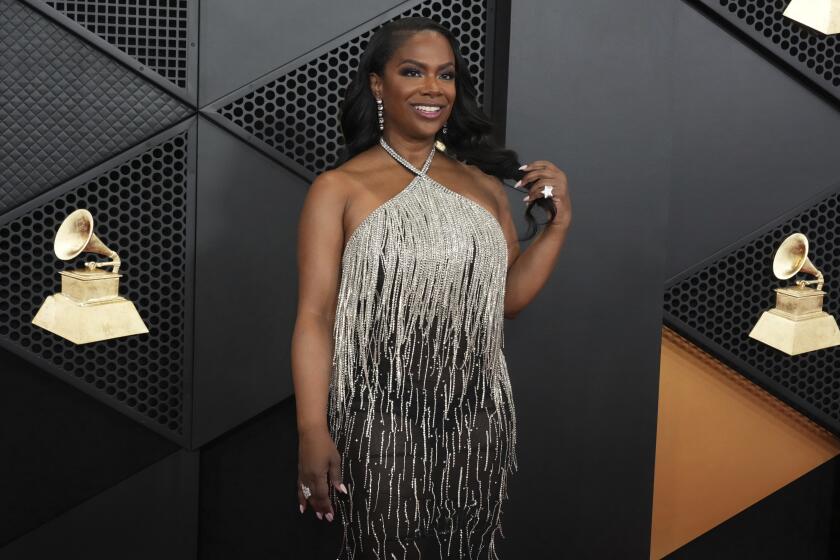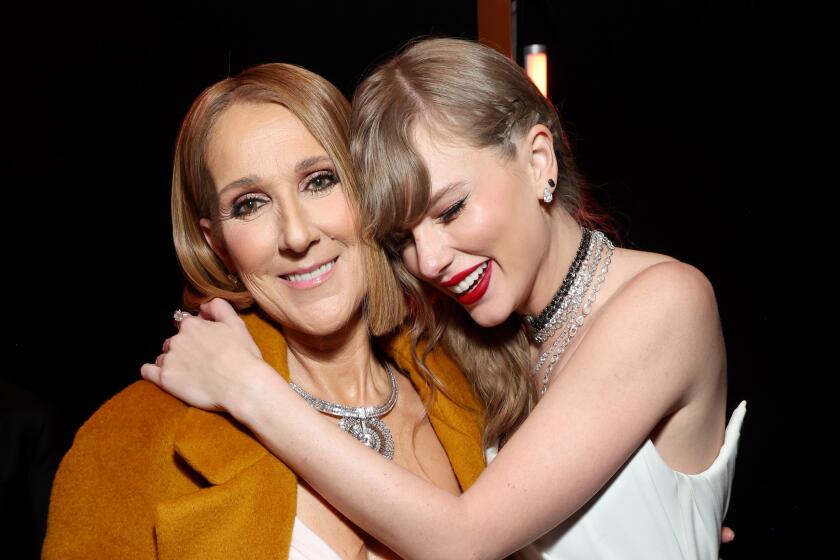Who is Joel Katz, the Grammy insider accused of sexual harassment by Deborah Dugan?
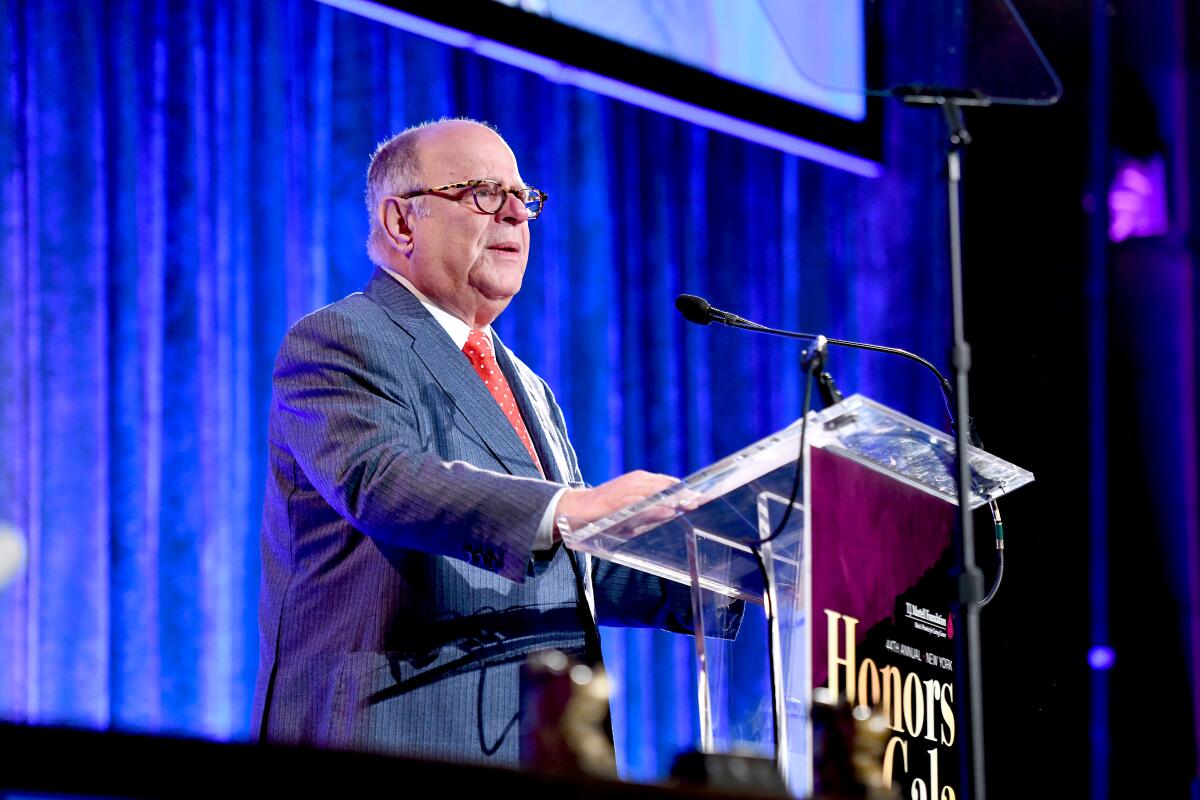
The entertainment lawyer Joel Katz has been a music industry insider for nearly 50 years. He’s represented artists as varied as James Brown, Willie Nelson, George Jones, Michael Jackson, Mary J. Blige and Sen. Orrin Hatch.
For half of that time, Katz, 75, has been a powerbroker at the Recording Academy, and on Tuesday that relationship thrust the attorney into the spotlight in advance of the 2020 Grammy Awards when Deborah Dugan, the academy’s chief executive, named Katz in an explosive EEOC sexual harassment complaint against the academy. The allegations came after Dugan was placed on administrative leave last week.
Combined, the chain of events made for one the most dramatic Grammy weeks in the event’s history and came just days before Sunday’s annual ceremony, which will occur at Staples Center and be broadcast on CBS.
At the center is entertainment lawyer Katz, a backstage mover who has been called “the dean of the Atlanta entertainment industry” by Billboard magazine, which in 2017 named him the most important lawyer in the music business.
In the complaint, Dugan accused Katz of sexual harassment, “exorbitant and unnecessary” expenses and conflict-of-interest, all factors that contributed to what she described as “a boys’ club” environment within the Recording Academy. Most prominently, she cited Katz’s behavior during a 2019 business dinner, which occurred not long after she was hired to replace outgoing CEO Neil Portnow — but before her Recording Academy employment commenced in August.
“Throughout their May 18, 2019, dinner (Mr. Katz chose a very expensive restaurant and ordered an outrageously expensive bottle of wine) Mr. Katz acted extremely inappropriately,” Dugan alleged in the complaint, adding later that “Mr. Katz ... suggested to Ms. Dugan that the two of them ‘spend time together’ and said that ‘traveling to my many homes could be something nice for us to share.’ ”
After the EEOC complaint was filed, Katz rejected her accusations in a statement issued through his attorney. It said, in part, “Mr. Katz categorically and emphatically denies her version of that evening. This dinner meeting was 2 1/2 months before Ms. Dugan started her job. Mr. Katz believed they had a productive and professional meeting in a restaurant where a number of members of the Board of Trustees of the Academy, and others, were dining.”
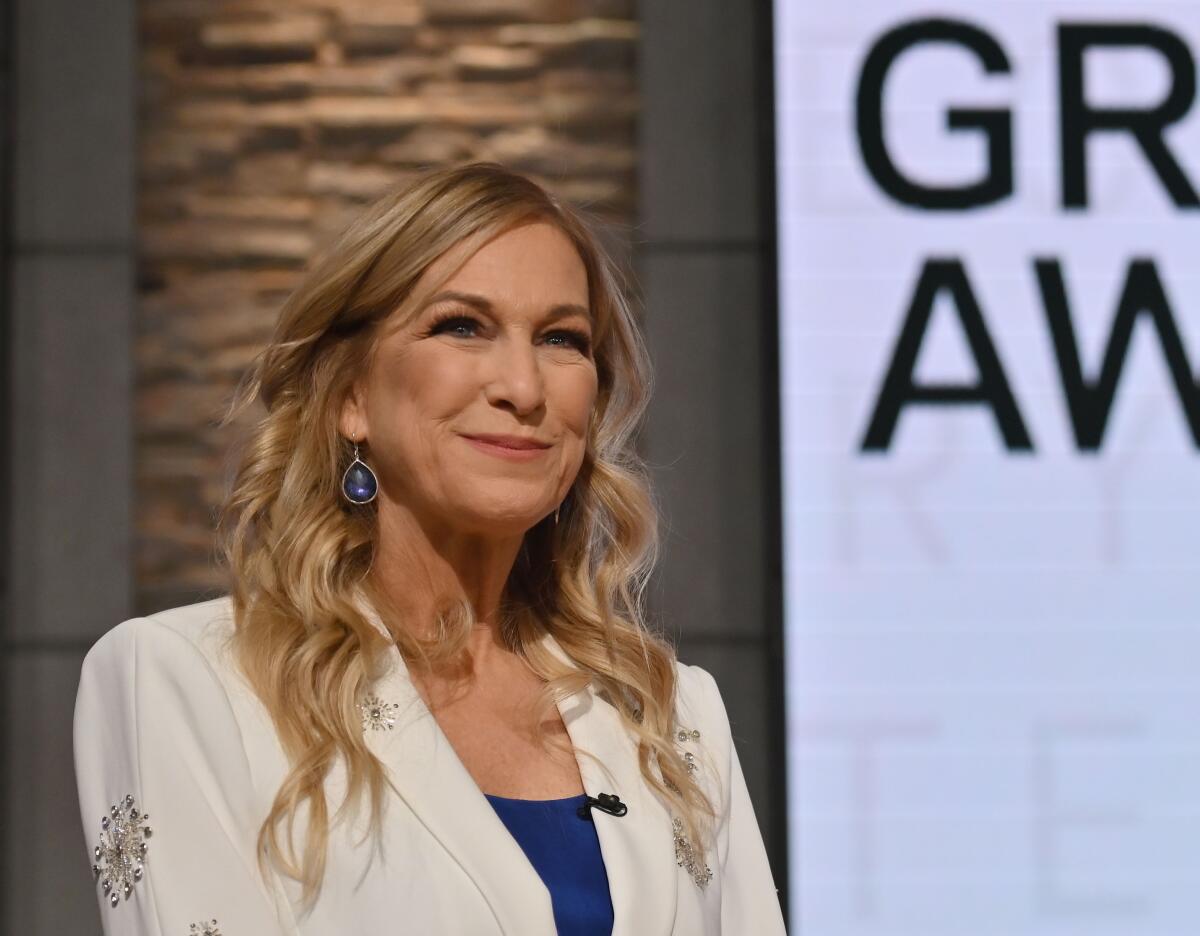
Dugan also claimed that the academy covered up a rape accusation lodged against Portnow by an unnamed musician. In a statement, Portnow denied the allegation, saying that Dugan’s EEOC complaint was “filled with inaccurate, false and outrageous and terribly hurtful claims against me.”
The events have further shaken the academy, which was already reeling after Portnow was pilloried in 2018 for saying that female musicians needed to “step up” in order to succeed at the Grammys. A few months later, he announced he would not seek a renewal of his contract.
In February 2019, Katz told Billboard that the #MeToo movement has prompted him to recommend adding language to contracts that addresses inappropriate behavior.
“If you’re an executive in the business, you’re going to be held to a higher standard than perhaps you were 10 or 15 years ago,” he said.
Katz has been a central Recording Academy figure for 25 years, and has maintained power in an opaque organization that has mostly evaded scrutiny. Across his time there he’s variously served as the academy’s chairman, as well as a board member of both the academy’s charitable foundation and the Grammy Museum. He’s served as the academy’s general counsel since 2003.
An executive more likely to be standing next to superstars in industry party pics than at the center, Katz made his name negotiating contracts, and not just for musicians. He’s represented major label executives such as Clive Davis, Tom Corson and L.A. Reid during contract talks.
“I never tell people I’m a lawyer,” Katz told the law school publication at his alma mater, University of Tennessee. “People ask, ‘What do you do?’ and I say, ‘I’m an architect surrounded by lawyers. I create things, build them, and then my lawyers close them up.’ ”
Among his biggest closings: a 10-year deal between the Latin Grammys and Univision for a reported $250 million, and the Recording Academy’s 2016 deal with CBS, a 10-year deal worth $500 million.
Most recently, Katz advanced the sale of Big Machine Label Group, a transaction that lit up social media after former client Taylor Swift very publicly decried the fate of her back catalog, which was owned by the company. (Despite being nominated for three Grammys, Swift has confirmed that she will not be attending Sunday’s ceremony.)
Few have had a better angle for understanding the Recording Academy’s machinations than Katz. He got his start in the music business when in the early 1970s he landed James Brown as a client. He soon negotiated for Brown a lucrative contract with Polygram Records. After news of the Brown deal spread, Willie Nelson quickly hired Katz, and soon recommended him to peers including George Jones and Kris Kristofferson.
Within a decade, Katz’s firm had forged a boulevard-wide expressway into Nashville’s music community. “After a while, it grew so much in Atlanta that I could get the best people because this was the best place to be if you wanted to practice entertainment law,” Katz told the Atlanta Journal-Constitution. “We had the stars, the big companies, the Grammy and Country Music awards.”
It’s that latter boast that feeds a narrative laid out in Dugan’s EEOC complaint, which in addition to claims of sexual harassment includes a host of revelations that call into question the fairness of the Grammy Awards. Katz and a fellow Grammy Museum board member whose firm also represents the Recording Academy, according to Dugan’s complaint, “are in unique and conflicted positions to influence academy decision making (including award nominations) to favor their clients outside of the academy.”
For example, Dugan alleges that Katz “told her during [a] conversation that he represents Neiman Marcus and could get her many free dresses so that she could ‘look pretty’ at academy events. In exchange, he asked Ms. Dugan to simply name Neiman Marcus as a sponsor of the Grammys.” Dugan declined the offer.
Dugan also called out Katz and his law firm Greenberg Traurig LLP for being the recipients, along with Proskauer Rose LLP, of those “exorbitant and unnecessary” legal expenses. The Recording Academy paid the two firms a total of $15 million for a five-year stretch starting in 2013, according to Variety.
This isn’t the first time that Katz has defended sexual harassment claims against an academy executive. In 1997, then-president C. Michael Greene was accused by an assistant of sexual harassment. According to a contemporaneous story in The Times, the academy (then called NARAS) “settled two harassment and discrimination claims by former workers; three others allegedly received extended severance packages or out-of-court settlements after making similar accusations.”
After an internal investigation. Greene was absolved. According to The Times, “Former academy chairman Joel Katz said the probe concluded that all the charges were groundless.” The CEO was accused again in 2001. He resigned soon thereafter. Katz remained.
More to Read
The biggest entertainment stories
Get our big stories about Hollywood, film, television, music, arts, culture and more right in your inbox as soon as they publish.
You may occasionally receive promotional content from the Los Angeles Times.




